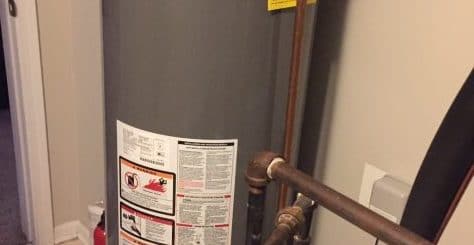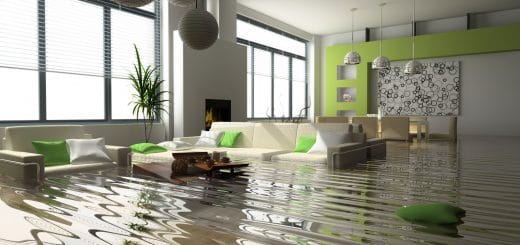Why is the Air Conditioner in my RV Leaking Water?
“Why does my RV air conditioner leak water?” is a common question that often leaves owners scratching their heads. We understand that these leaks aren’t just an inconvenience; they pose a real threat to your RV by causing potential water damage. In this blog, we’ll reveal the reasons behind air conditioner leaks in your RV and provide practical solutions to fix the problem and keep your home on wheels dry and in top shape.
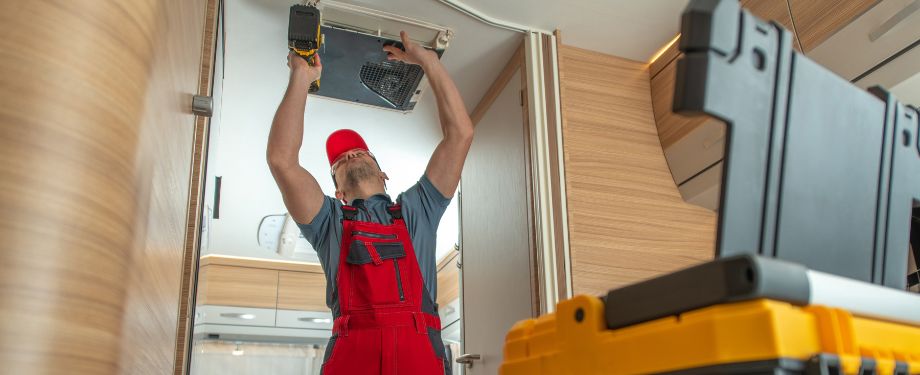
Common Reasons Your RV’s AC May Leak Water
Wondering why your RV’s AC is dripping water? Here are a few possible reasons to consider: clogged drain line, dirty filters, or even a refrigerant issue. Check these out to keep your RV cool and dry!
- Leaking Caulk: The roof of your RV is pierced by various elements such as vents and skylights, and the caulking around these components tends to deteriorate over time due to exposure to the elements. If you see drips inside, it could be because of this caulk issue.
- Roof Racks: Not all RVs have roof racks, but if yours does, they’re there for added convenience. Yet, these racks might open the door to water getting in. The places where they’re attached, and the fasteners might weaken the roof’s protection. To avoid leaks, it’s vital to make sure they’re installed right and to keep up with regular maintenanceMaintenance is the routine care, inspection, and repair of a... More.
- Rainwater InfiltrationInfiltration is the process by which water, air, or other su... More: Rainwater can often be the cause of leaks in your RV AC unit, especially if the seals around the system are not in good condition. The seals act as protective barriers, shielding the AC unit from rainwater infiltrationInfiltration is the process by which water, air, or other su... More. When these seals are either damaged or not sealed properly, they form weak spots, providing opportunities for rainwater to get inside the unit. To prevent this, it’s important to check the seals regularly for any signs of damage or inadequate sealing.
- Ladder Mounts: In many RVs, convenient ladders are provided for easy access to the roof. However, if the attachment points of these ladders lack proper sealing, they can become vulnerable areas susceptible to leaks. Regular maintenanceMaintenance is the routine care, inspection, and repair of a... More is important, if not these areas might let water in, causing annoying drips inside your RV.
- Physical damage: Accidents, close encounters with low-hanging branches, or any unexpected bumps may leadLead is a heavy metal that can be toxic to humans, especiall... More to structural harm to your RV roof, making it susceptible to potential leaks. Instances of physical damage could include dents from falling debris, cracks caused by collisions, or punctures from sharp objects. A quick repairRepair is the act of fixing or restoring damaged property, m... More is necessary to reduce the risk of water damage and to maintain the integrity of your RV’s protective covering.
- Aging: As your RV matures, the materials used in its roof construction naturally degrade, leading to a decline in structural integrity and the effectiveness of roofing materials. With the aging process, adopting a proactive maintenanceMaintenance is the routine care, inspection, and repair of a... More approach becomes essential. It’s also important to note that if you observe signs of extensive wear and tear, considering replacement or obtaining a new roof becomes essential to prevent water droplets from infiltrating your RV.
- Clogged Drain Line: The drain line is responsible for carrying condensation from the AC unit to the outside. If it becomes clogged, water may back up and leak into your RV.
- Drain Pan Overflowing: The drain pan is designed to collect condensation produced during the cooling process. If it overflows, water may leak into your RV. The drain pan can become clogged with dirt, debris, or moldMold is a type of fungus that grows in damp or humid conditi... More growth over time. Thus, a regular inspectionInspection is the careful examination and assessment of a pr... More and a cleanup is a must.
- Frozen Evaporator Coils: If the evaporator coils freeze, they can produce excess water when thawing, leading to leakage. Check for signs of ice accumulation on the evaporator coils. This may be caused by low refrigerant levels, insufficient airflow, or other issues.
- Condensate Pump Failure: In certain RV air conditioning systems, a condensate pump serves as a handy assistant, helping to remove water that accumulates in the drain pan. However, if this trusty pump decides to take a break and fails to do its job, trouble may arise. When the pump fails, water can start piling up in the drain pan, potentially causing leaks and unwanted drips inside your RV.
How Can I Prevent and Repair Air Conditioner Leaks in my RV?
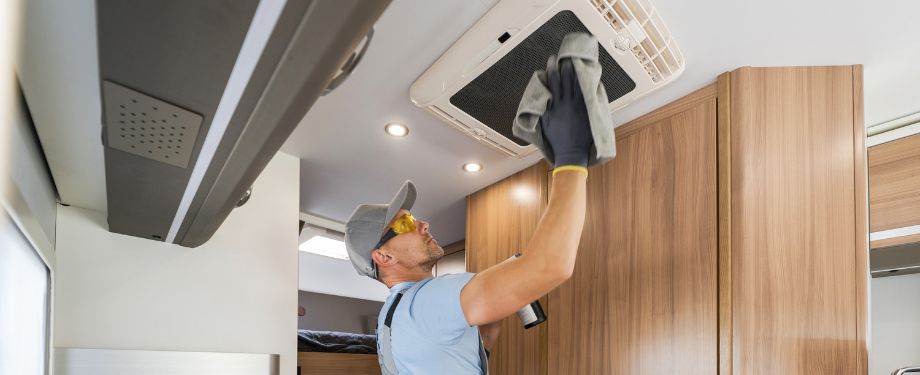
Below are the following measures you need to take in order to prevent AC leaks and heavy water damage.
- First and foremost, inspect the AC unit and the area around it to understand the cause behind the water leaks.
- Clear the condensate drain line regularly to prevent clogs. Use a mixture of water and vinegar to flush out any debris.
- Check the seals on the roof around the AC unit to make sure they’re in good condition and not letting water seep in.
- Check the ductwork for any leaks or loose connections.
- Inspect seals and gaskets for any signs of wear, cracking, or deterioration. Replace them if necessary.
- Park your RV on level ground to prevent water from pooling in the AC unit.
- Make sure your RV’s AC unit is installed correctly by following manufacturer guidelines.
- Consider using RV AC covers during periods of inactivity to protect the unit from the elements.
- Use dehumidifiers inside the RV to maintain optimal humidityHumidity is the amount of moisture or water vapor present in... More levels and reduce the workload on the AC system.
Do you know what happens to your RV, if the above measures aren’t taken?
If there’s continuous leaking and you don’t take any action, you could face severe water damage issues.
- Continuous exposure to water can cause damage to the interior components of your RV, including walls, ceilings, and flooring. Over time, this can leadLead is a heavy metal that can be toxic to humans, especiall... More to rot, decay, and a decrease in structural integrity.
- If you allow stagnant water from the AC leak, it will create a conducive environment for moldMold is a type of fungus that grows in damp or humid conditi... More and mildewMildew is a type of fungus that grows on damp surfaces, typi... More to thrive. This will not only pose health risks for you but will also leadLead is a heavy metal that can be toxic to humans, especiall... More to unpleasant odors inside your RV.
- Water and electricity are a dangerous combination. If the AC water leak reaches the electrical components of your RV, it can result in short circuits, corrosion, and malfunctions in the electrical systems.
- Stains, discoloration, and watermarks can mar the appearance of your RV’s interior surfaces.
- Water infiltrationInfiltration is the process by which water, air, or other su... More can compromise the insulationInsulation is a material used in buildings to reduce the tra... More within the RV walls, reducing its effectiveness.
RestorationMaster: For Water Mitigation and Cleanup
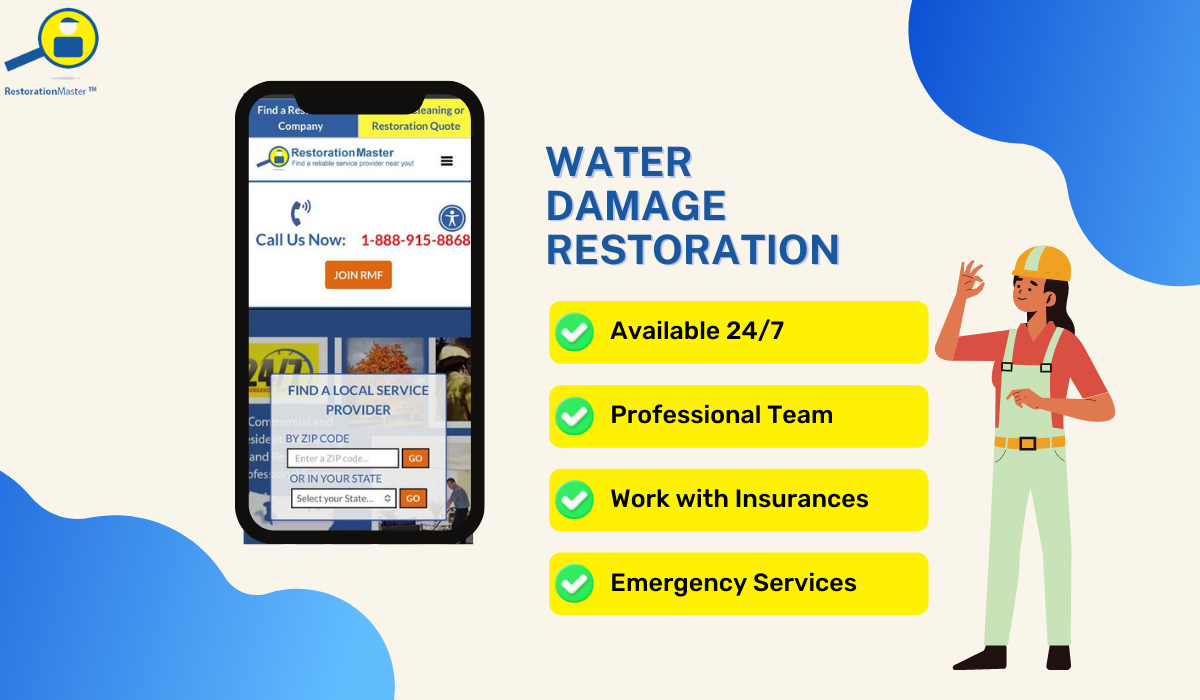
If you’ve spotted dampness or water leaks in your RV, don’t hesitate to contact RestorationMaster for prompt water mitigation and damage restorationRestoration is the process of returning a property to its pr... More. Our skilled team is ready with advanced tools to address these issues quickly. Overlooking them may result in more significant problems, like moldMold is a type of fungus that grows in damp or humid conditi... More growth and structural damage.
Call our water damage restorationWater damage restoration is the professional process of clea... More experts now.










